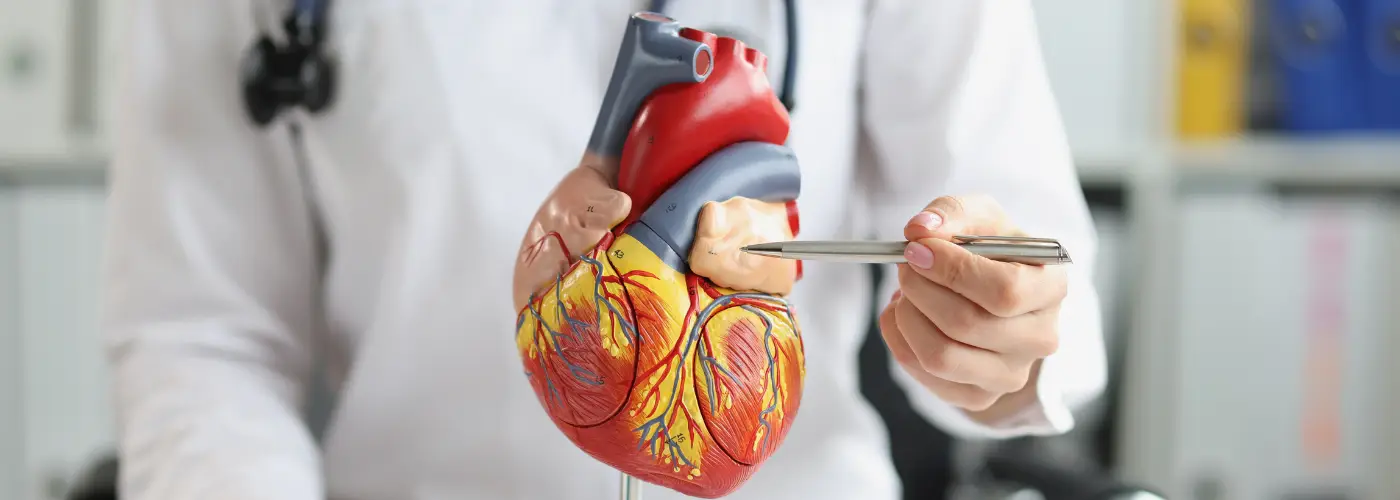Topics
While a pacemaker greatly improves the quality of life for those with heart conditions, certain activities can interfere with its functioning. These include activities that expose the pacemaker to strong electromagnetic fields, as these may disrupt its operation.Discuss your lifestyle and activities with a cardiologist at Gleneagles Hospitals today to tailor recommendations towards your specific condition.
Electronic Devices to Keep at a Distance
Modern pacemakers are shielded against most common electronic devices, but maintaining a safe distance is essential to ensure proper functioning.
Mobile Phones
Keep your mobile phone at least 6 inches away from your pacemaker. When using your phone, hold it to the ear opposite your pacemaker.
Microwaves
Modern microwaves are generally safe, but avoid standing directly in front of them while in use.
Wearable Tech
Avoid placing fitness trackers, smartwatches, or similar devices directly over the pacemaker.
Metal Detectors
Inform security personnel about your pacemaker, as metal detectors in airports and public venues can affect the device. Opt for manual screening when possible.
Medical Procedures and Equipment to Be Cautious Of
Some medical procedures and equipment can interfere with a pacemaker’s functionality. Always inform healthcare professionals about your pacemaker before undergoing any procedure. Examples include:
Magnetic Resonance Imaging (MRI)
While many newer pacemakers are MRI-compatible, older models may not be. Ensure your cardiologist clears you for any MRI scans.
Electrocautery Tools
Used in surgeries, these tools can affect pacemaker programming. Coordination between your surgeon and cardiologist is vital.
Radiation Therapy
Proximity to targeted radiation can impact pacemaker performance. Shielding techniques may be necessary.
Transcutaneous Electrical Nerve Stimulation (TENS)
Used for pain relief, TENS devices may interfere with pacemaker signals. Confirm safety with your physician.
When in doubt, consult your cardiologist or a pacemaker specialist to ensure your safety during medical interventions.
Lifestyle Adjustments for Pacemaker Users
Living with a pacemaker requires some lifestyle modifications, but these changes can be seamlessly integrated into daily life. For instance, travel is generally safe, but it’s crucial to carry a pacemaker identification card. This card provides information about your device and helps in emergencies. Additionally, staying on top of your pacemaker’s maintenance is essential. Regular check-ups with your cardiologist ensure the device is functioning optimally and that its battery is adequately charged. Most pacemakers last between 5 to 15 years, depending on usage, after which a replacement procedure may be necessary.
Maintaining a healthy lifestyle is also critical. A heart-friendly diet, moderate exercise (as recommended by your doctor), and avoiding smoking or excessive alcohol consumption can improve your overall heart health, complementing the benefits of your pacemaker.
Book an Appointment at Gleneagles Hospitals
A pacemaker is a life-saving device that allows patients to lead healthier and more active lives. By understanding the activities, devices, and medical procedures to avoid, and by making necessary lifestyle adjustments, you can maximize the benefits of your pacemaker while minimising risks. At Gleneagles Hospital, our team of specialists provides comprehensive care for patients with pacemakers, from consultations to device monitoring and replacements. Schedule an appointment with our cardiology experts today to ensure the best care for your heart health. You may also book an appointment by downloading the MyHealth360 application from the Google Play Store or Apple App Store.








